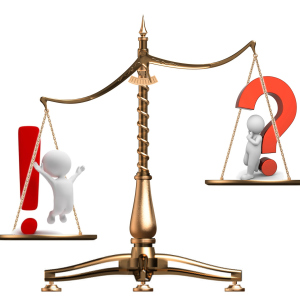Corruption is the abuse of trusted authority and the choice of powers to obtain their own benefit.
Determination of corruption
Corruption is abuse state authority (selected politician or appointed civil servant) for private benefits. In a broader understanding of corruption is abuse trusted Power (heritage, education, marriage, election, appointment or something else) for personal gain.
A more complex scientific definition of the concept of "corruption" was developed by Professor Petrus Van Duin:
- Corruption is imperfection or disintegration in the decision-making process, when a decision maker agrees to reject or require deviation from the criterion, which should regulate it or its decision-making in exchange for remuneration or promise, or waiting for remuneration, while these The motives affecting his or her decision making cannot be part of the rationale for the decision.
Corruption in large sizes occurs whenever the card has large events associated with large amounts of money, several "players" or a huge amount of supplies, often in disaster situations.

Recipients and payers
Often you can hear complaints about politicians and state officials who take bribes and are enriched in private at the expense of a simple citizen. But do not forget that there must be paid payers who benefit from abuse of power and authority.
On the reverse side of the coin, it is payers that believes that their "gift" is a political or state official may in return to provide them with the necessary benefits and benefits. Special privileges have, as a rule, those payers who are in one way or another to high-ranking politicians.

Extortion
Often those who have power in our society are asking to bribe or make it possible to bribe. This means that the question is "who is to blame," passes from the person who pays, to the one who extorts and gets. Many businessmen know that if you do not pay the necessary persons on time, you will lose in a competitive struggle.
As a rule, in society it is known publicly or in sidelines, which of officials is open to "gifts" transactions. The gift from the official may imply consideration of the application with priority or the appointment of the contract, scholarship or work. Potential payer will look for his "sacrifice"; He will look for politics / public official, about which everyone knows that it can be "to buy" that this person is ready to violate the rules in exchange for a "gift." Thus, the reputation that the state official or politician enjoys is important.

Corruption and business
For entrepreneurs who want to provide sales, bribes are the subject of the costs that they take into account in advance at their prices. As a result, products and services are more than necessary from a commercial point of view, since the costs of the cottage have already been provided in the budget.
If corruption is estimated solely on the basis of the business economy, macroeconomically it costs money for society, which should be considered with loss. From a microeconomic point of view, it is beneficial for a bombing entrepreneur. The cake payer provides the desired transaction, which, if evaluated by purely commercial reasons - strictly speaking, must be appointed to someone else. It damages individual entrepreneurs and transactions; This will damage the national economy and the global economy. The fact is that, being influenced by the payment of bribes, corrupt officials (politicians, public officials) often do not take the best decisions, but make a decision, the worst for society.
Not the best manufacturer and not the best product that wins the price and quality, but the supply contract that is ready to pay money. Naturally, these additional payments in any case will be in the economy and, therefore, will become a burden from a macroeconomic point of view or for the taxpayer or for the consumer.

"Small" corruption
Under small corruption, any small payment is meant to a government official with a view to somewhat accelerate or facilitate the transaction, which in itself complies with the rules and law. To illustrate such a case, we give as an example the carriage of fresh vegetables across the border. Is corruption payment of a minor amount of money A customs officer who can accelerate the border checking of a perishable cargo on a truck or vessel? The customs officer does not do anything wrong, he does what he needs to do, but does it faster before. As a result, these vegetables will be much more likely to enter the market with fresh.
Studies conducted in Kenya showed that the Kenyans spend on a bribe an average of 113 euros per month, which is about a third of the average income that can be spent monthly. Middle Kenya turns out to be in a situation where he "must" bribe someone, 16 times a month; And in ten of these sixteen, police officers will be involved. Kenyan enterprises postpone 3 percent on average from their turnover in order to bribe the government and each other.
Many people "small" corruption annoys even more than large-scale corruption. This type of corruption flourishes in the lower rows of organizations, where at higher levels "large" corruption prevails among government officials and politicians. When the more low rank officials and politicians see that their high-ranking colleagues fill their pockets with large amounts of money, it may seem that they can get their share.
The boss who takes his share in the "large" corruption will not fight against the "small" corruption of his subordinates within its place of service or political party.

It is unlikely that sometimes corruption will completely disappear from society. But society should send maximum efforts to limit corruption and protect the interests of the needy members of society. After all, ultimately, all corruption costs are paid by the consumer and taxpayer. Do not forget that global corruption flourishes on a wide basis of small corruption payments or bribes.

















